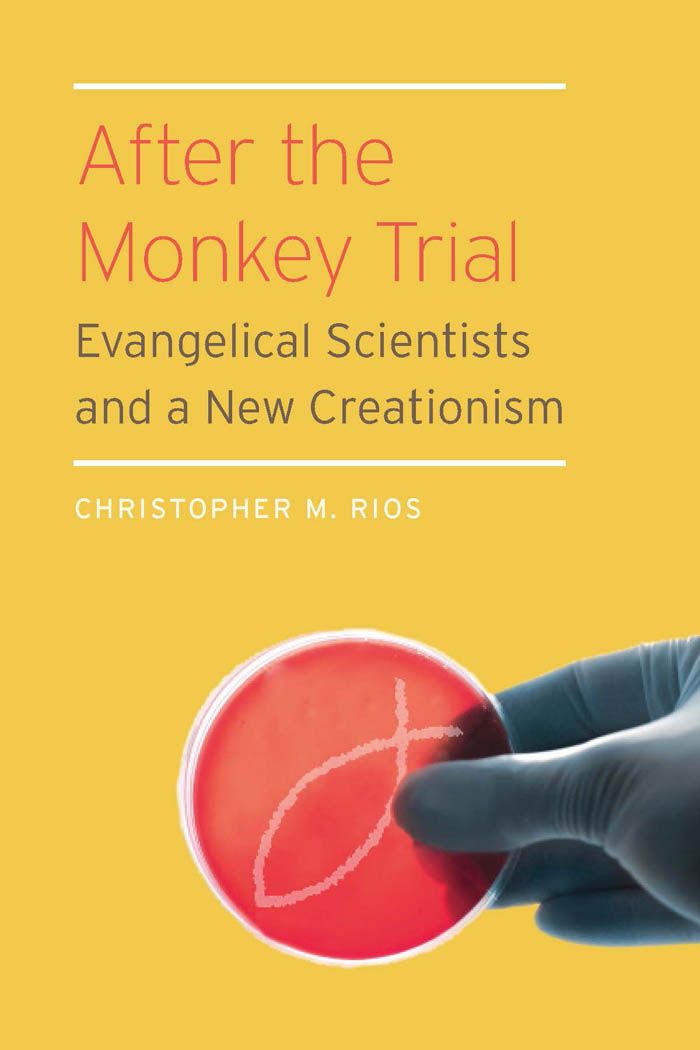After the Monkey Trial
Evangelical Scientists and a New Creationism

This book can be opened with

In the well-known Scopes “Monkey Trial” of 1925, famously portrayed in the film and play Inherit the Wind, William Jennings Bryan’s fundamentalist fervor clashed with defense attorney Clarence Darrow’s aggressive agnosticism, illustrating what current scholars call the conflict thesis. It appeared, regardless of the actual legal question of the trial, that Christianity and science were at war with each other. Decades later, a new generation of evangelical scientists struggled to restore peace. After the Monkey Trial is the compelling history of those evangelical scientists in Britain and America who, unlike their fundamentalist cousins, supported mainstream scientific conclusions of the world and resisted the anti-science impulses of the era. This book focuses on two organizations, the American Scientific Affiliation and the Research Scientists’ Christian
Fellowship (today Christians in Science), who for more than six decades have worked to reshape the evangelical engagement with science and redefine what it means to be a creationist.
“The tensions between evangelical Christianity and evolutionary theory have become notorious, but in this pioneering transatlantic study Christopher Rios shows that from the 1940s there were organizations in America as well as in Britain that wrestled perceptively and persistently with the issues involved. Their achievement was to establish that science and religion are entirely compatible.”
Rios's work fills an important niche in the literature on religion and science. Concentrating on the understudied period running from the Scopes trial into the 1980s, Rios highlights the transatlantic aspects of the controversy over evolution among evangelical scientists. This book bolsters our understanding of the puzzling phenomenon whereby popular evangelicalism presents a united front against evolution, while a large majority of evangelical scientists accept evolution and harmonize their professional work with their commitment to orthodox Christianity. The book is another nail in the coffin of the warfare model for understanding the relationship between religion and science.
Christopher Rios’ After the Monkey Trial prompts us to revise our understanding of evangelicals and evolution since the Scopes trial of 1925, when evangelicals earned a reputation as combative and anti-intellectual. His careful study adds a wonderful cast of characters to the history of religion and science that recovers the rich, if complicated history of evangelical scientists' participation in and negotiation with scholarship on evolution. This book offers not only a fresh perspective on the history of religion and science, but also a valuable historical case study for thinking about ongoing debates about evolution and the culture wars -- one that will force us to ask why we all too often, and all too easily, pit science and religion against one another.
“Few scholarly studies of evangelical responses to evolution and creation focus on the period from the 1940s through the 1980s; fewer still explore debates outside the United States. Chris Rios’s After the Monkey Trial: Evangelical Scientists and a New Creationism does both, making it a welcome addition to the growing body of literature on the history of science and religion.”
By telling the story of how evangelicals in England and America came to terms with science in the post-war period, Rios’ book fills an important gap in the history of science and religion. It is well conceived, well written, wide-ranging, and carefully researched from primary sources—including unpublished correspondence and interviews. Anyone interested in this topic should read this book.

